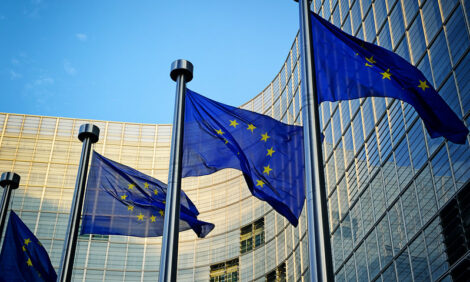



Exchange Rate Presents Opportunity for Beef Exports
UK - The English beef and lamb industry can benefit from the recent exchange rate fluctuations by targeting non-EU markets.While Sterling has strengthened marginally against the Euro in recent months, which has contributed to a cooling of returns from exports to the Continent, its poor performance against the US Dollar has mirrored that of the Euro, making our products more competitive on Third Country markets.
And in markets where we are competing with countries like New Zealand and Australia, the fact that their currencies are comparatively strong is making UK exported beef and lamb more competitive than it might otherwise be, despite weaker markets.
“There have been concerns voiced about the relative strengthening of Sterling against the Euro – up 8.23 per cent over the last year* – and when you put this alongside the recent fall in the sheep price, it is easy to see why people may think things are not going too well in the industry. However, the current situation is actually creating new opportunities for beef and lamb producers and processors,” said Peter Hardwick, EBLEX head of trade development.
“The change in performance against the Euro is making trading more difficult in Europe, though it would be wrong to assume this is significantly affecting trade. On the lamb side, we currently have a weak market, which will recover in the coming months. For beef, trading remains robust, which demonstrates that currency changes are not the only driver for export sales.
“However, the current situation is creating more opportunities on world markets because we are still performing poorly against the international benchmark dollar, down 6.72 per cent in the last year*, which is making our products attractive in non-EU countries.
“We have been out recently at trade fairs in Dubai and Abu Dhabi where there has been huge interest in English beef and sheep meat. We led a trade mission to Canada last month to look at building links with importers there as the potential for greater trade to North America opens up. Hong Kong has also just announced that it is reopening its market to bone-in-beef from the UK after negotiations in which EBLEX were heavily involved. The current exchange rate benefits all of these enterprises because our products are very competitive on price.
“It is impossible to accurately predict what currency markets will do but by having access to as many markets as possible across the world, we are spreading the risk of being severely affected by a change in any one region, while ensuring there are markets for all parts of the animal, aiding carcase balance and reducing waste.”
Lamb prices in England have been under scrutiny in recent weeks after an annual seasonal fall in prices hit earlier than normal, due in some part to favourable weather conditions. Although New Zealand lamb prices have fallen due to globally weaker markets, the fact that the New Zealand Dollar remains strong against our currency has helped to reduce the full impact of this.
“Focusing on opening additional global markets has helped push up beef exports outside the EU by 150 per cent and sheep meat exports by 193 per cent in the last two years,” added Nick Allen, EBLEX sector director.
“It is easy for us as an industry to focus on the negatives but there are significant positive messages and opportunities that the current situation offers and we must look to these rather than talking down the sector, which can be counter-productive.”
| TheCattleSite News Desk | Read more EBLEX News here |


